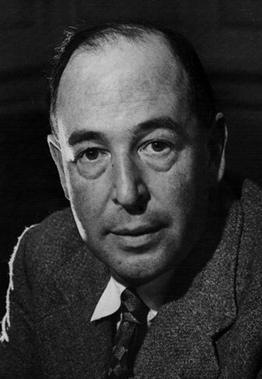- C.S. Lewis, born on November 29, 1898, was a renowned British writer and scholar.
- He is best known for his fantasy series “The Chronicles of Narnia,” which has captivated readers of all ages.
- Lewis was a close friend of J.R.R. Tolkien, the author of “The Lord of the Rings,” and they formed a literary group called the Inklings.
- He was a prolific writer across various genres, including fantasy, science fiction, theology, and literary criticism.
- Lewis was an Oxford University professor, teaching English Literature at Magdalen College for nearly three decades.
- He converted from atheism to Christianity and became one of the most influential Christian apologists of the 20th century.
- Lewis wrote many books on Christian apologetics, including “Mere Christianity” and “The Problem of Pain,” which explored theological and philosophical questions.
- He had a deep interest in mythology and folklore, which influenced his writing and the themes present in “The Chronicles of Narnia.”
- Lewis’ writing often incorporated themes of sacrifice, redemption, and the battle between good and evil.
- He wrote extensively on the topics of faith, morality, and the human experience, engaging readers with his insightful and thought-provoking ideas.
- Lewis’ book “The Screwtape Letters” presents a fictional series of letters from a senior demon, offering insights into human nature and spiritual warfare.
- He wrote a series of science fiction novels known as the “Space Trilogy,” which includes “Out of the Silent Planet,” “Perelandra,” and “That Hideous Strength.”
- Lewis’ works have been translated into multiple languages and continue to be widely read and loved by readers worldwide.
- He was a talented and engaging speaker, known for his ability to communicate complex ideas in a relatable and accessible manner.
- Lewis had a close friendship with Charles Williams, another member of the Inklings, and they influenced each other’s writing and intellectual pursuits.
- He wrote under the pseudonym “Clive Hamilton” for some of his early works, including the poetry collection “Spirits in Bondage.”
- Lewis’ childhood was marked by the loss of his mother and his experiences in World War I, which had a profound impact on his worldview and writing.
- He enjoyed writing letters and maintained extensive correspondence with friends, fans, and fellow authors throughout his life.
- Lewis’ philosophical and theological ideas continue to inspire scholars and theologians, contributing to ongoing discussions on faith and reason.
- He was a gifted and imaginative storyteller, creating vivid and memorable characters that resonate with readers of all generations.
- Lewis’ writing often explored the themes of longing and the search for meaning, capturing the universal human experience.
- He was known for his wit and sense of humor, which infused his writing with a touch of lightheartedness and charm.
- Lewis’ books have been adapted into successful films, further popularizing his works and introducing new audiences to his imaginative worlds.
- He had a deep love for literature and mythology, drawing inspiration from ancient myths and legends in his storytelling.
- Lewis had a close relationship with his brother Warren, with whom he shared a strong bond and intellectual pursuits.
- He was an avid reader from a young age and credited books with shaping his imagination and nurturing his love for storytelling.
- Lewis’ academic contributions extended beyond literature, as he also wrote influential works on medieval and Renaissance literature.
- He had a fascination with the idea of joy, exploring its nature and significance in his book “Surprised by Joy.”
- Lewis’ radio broadcasts during World War II, known as the “BBC talks,” brought comfort and inspiration to listeners during a difficult time.
- He had a remarkable ability to convey complex theological concepts through allegory and storytelling, making his works accessible to readers of different backgrounds.
- Lewis’ non-fiction book “The Abolition of Man” raised important questions about the role of education and ethics in modern society.
- He valued friendship and had a loyal circle of friends who provided intellectual stimulation and support throughout his life.
- Lewis’ book “Till We Have Faces” is often regarded as his most mature and complex work, exploring themes of love, identity, and the nature of the divine.
- He had a strong interest in the intersection of faith and reason, advocating for a balanced approach to understanding and interpreting the world.
- Lewis’ lectures and essays on literature and writing continue to be studied and appreciated by aspiring writers and scholars.
- He was known for his love of nature and the outdoors, finding solace and inspiration in the natural world.
- Lewis’ writings on grief and loss, particularly in his book “A Grief Observed,” reflect his personal experiences and provide solace to those navigating their own grief journeys.
- He wrote poetry throughout his life and published several collections, though he is primarily known for his prose works.
- Lewis’ works have been a source of inspiration for musicians, artists, and filmmakers who have interpreted and adapted his stories in various creative forms.
- He had a deep understanding of human psychology, often exploring the complexities of human nature and the struggles of the human condition in his works.
- Lewis’ stepson, Douglas Gresham, has worked to preserve and promote his stepfather’s literary legacy.
- He was an advocate for reading and education, emphasizing the importance of literature in developing critical thinking and imagination.
- Lewis’ legacy extends beyond his writing, as he continues to influence Christian thought and engage in ongoing theological conversations.
- He wrote children’s literature in addition to his adult fiction, demonstrating his ability to engage readers of different age groups.
- Lewis was a member of the Church of England and provided valuable insights into Christian theology and spirituality through his writings.
- He had a love for languages and was proficient in Greek, Latin, and Old English, which enriched his understanding of literature and informed his writing.
- Lewis’ book “The Great Divorce” presents a fictional exploration of heaven, hell, and the human struggle to choose between them.
- He believed in the power of storytelling to convey truth and connect with readers on a deep level.
- Lewis’ philosophical ideas often centered around the concept of “mere Christianity,” emphasizing core Christian beliefs shared by various denominations.
- He remains an influential figure in literature and theology, with his works continuing to inspire and challenge readers with their depth and imagination.
Facebook Comments

































